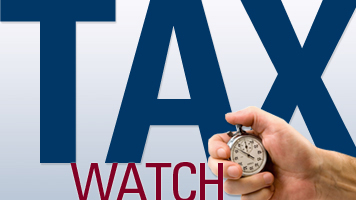
National Taxpayer Advocate Nina Olson shares the issues that the Office of the Taxpayer Advocate will prioritize during the 2014 fiscal year and describes the challenges facing the IRS.
National Taxpayer Advocate’s Mid-Year Report to Congress Gives 2014 Objectives
The IRS recently released IR-2013-63, the National Taxpayer Advocate Report to Congress: Fiscal Year 2014 Objectives. In the report, National Taxpayer Advocate Nina Olson cautioned that the limited IRS budget creates an environment where the IRS cannot give due consideration to taxpayer rights or fundamental tax administration principles. Olson also issued a special report on the IRS’s use of questionable criteria to screen applicants for tax-exempt status and made recommendations.
"The IRS is an institution in crisis," Olson said. "In my view, however, the real crisis is not the one generating headlines. The real crisis facing the IRS — and therefore taxpayers — is a radically transformed mission, coupled with inadequate funding to accomplish that mission."
Mid-year report
Olson identified issues that the Office of the Taxpayer Advocate plans to prioritize during the upcoming fiscal year and describes current challenges facing the IRS. She said these are items and processes the IRS must improve, including:
- How it assists tax return preparer fraud victims
- Oversight of the tax preparer industry
- Provision of effective and timely relief to identity theft victims
- Conducting education and outreach to taxpayers about their responsibilities under the Affordable Care Act
- Resolution procedures for erroneous revocations of the tax-exempt status of small Code Sec. 501(c)(3) organizations
- Establishment of more reasonable "settlement initiatives" for taxpayers with legitimate reasons for overseas bank and financial accounts
Olson stated that the 83 percent cut to the budget for employee training experienced by the IRS since 2010 would likely impair the ability of employees to obtain the education and professional skills they require to administer the tax system in a manner that respects taxpayers' rights.
Olson also reported on the IRS’s use of inappropriate criteria to review applications for tax-exempt status from certain groups. Olson attributed the failure to lack of guidance and transparency, the absence of adequate checks and balances, management and administrative failures, and the Exempt Organizations (EO) office’s "cultural difficulty" with the Taxpayer Advocate Service.
©2013 CCH. All Rights Reserved.
